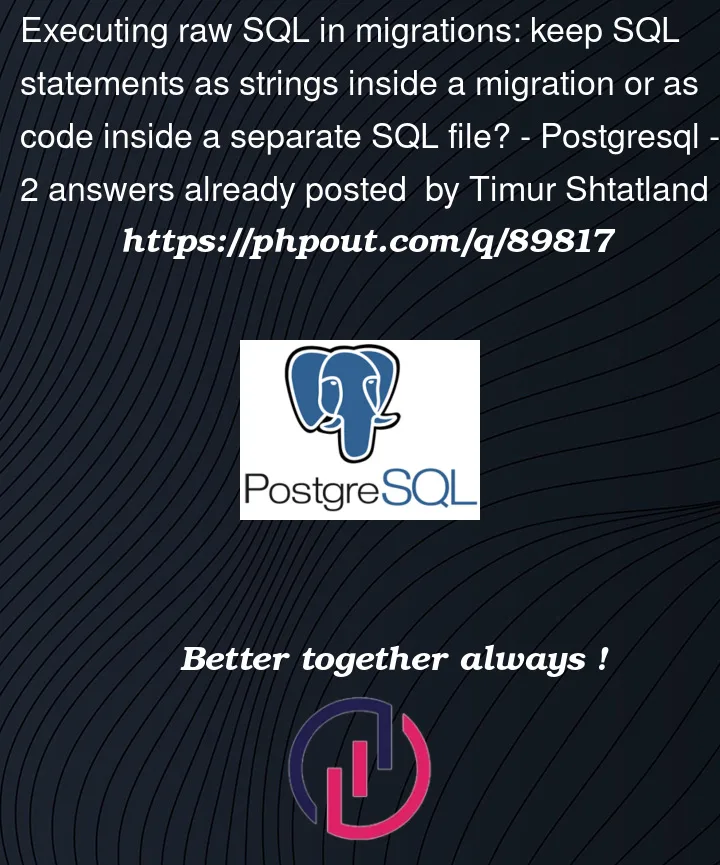In the database, I have multiple materialized views with big definitions. I also have multiple migrations that change the definitions of some of these materialized views using DROP and CREATE statements. Thus, we often are dropping / recreating the same views over and over, with small changes. These (rather bulky) statements are now stored inside strings:
class MyMigrationName < ActiveRecord::Migration[5.2]
def up
sql = <<~SQL
...
create materialized view if not exists foo_1 as ... ;
create materialized view if not exists foo_2 as ... ;
...
SQL
execute sql
end
def down
...
end
I am considering switching from this current approach to a different one, where the SQL code is stored inside separate SQL files, for example in db/migrate/concerns/create_foo_matviews.sql. The code is read from the file and executed from inside the migrations, like so:
class MyMigrationName < ActiveRecord::Migration[5.2]
def up
execute File.read(File.expand_path('./concerns/create_foo_matviews.rb', __FILE__))
end
def down
...
end
The pros of this approach are:
- It is easier to see the differences between the old and the new SQL code using
git diff(especially important given that materialized views’ definitions are big, but the actual changes in migrations are relatively small). - The SQL file adds syntax highlighting to the SQL code.
- There is less copy/pasted code if I only change the relevant parts in the SQL file.
Are there any problems associated with this proposed approach? If yes, what would be an alternative solution to maximize maintainability?
See also




2
Answers
I’d leave it in the Migration.
Mainly because the migration then contains everything that actually makes up the DB change.
You would need to have two external SQL files (up and down) that I need to search/find first before I understand what the migration does.
Depending on the Editor you are using, you will get (limited) syntax highlighting

The migrations that execute custom SQL would all look the same, just the name of the external file would be different.
What problem are you trying to solve? Just the "bulky" strings? I don’t think that this is problem (to be honest once the migration is run, you not go back to it anyhow) that is worth spennding a lot of time on. Just to the simplest thing: SQL in heredoc string.
There are also gems that allow you to create (materialized) views with normal migration code (by adding support for
create_viewor similar) but i’d not add an additional dependency for something this simple.Also consider changing from schema.rb to structure.sql, if not yet done.
Sound like you want to create your own helpers to create materialized views, something like
add_indexoradd_column.You could make a module named like
MaterializedMigrationsin your lib directory. then you can required it in a initializer and for last you include it in your migration code, like this:The helper API is only a suggestion, you could design better API for your use cases.